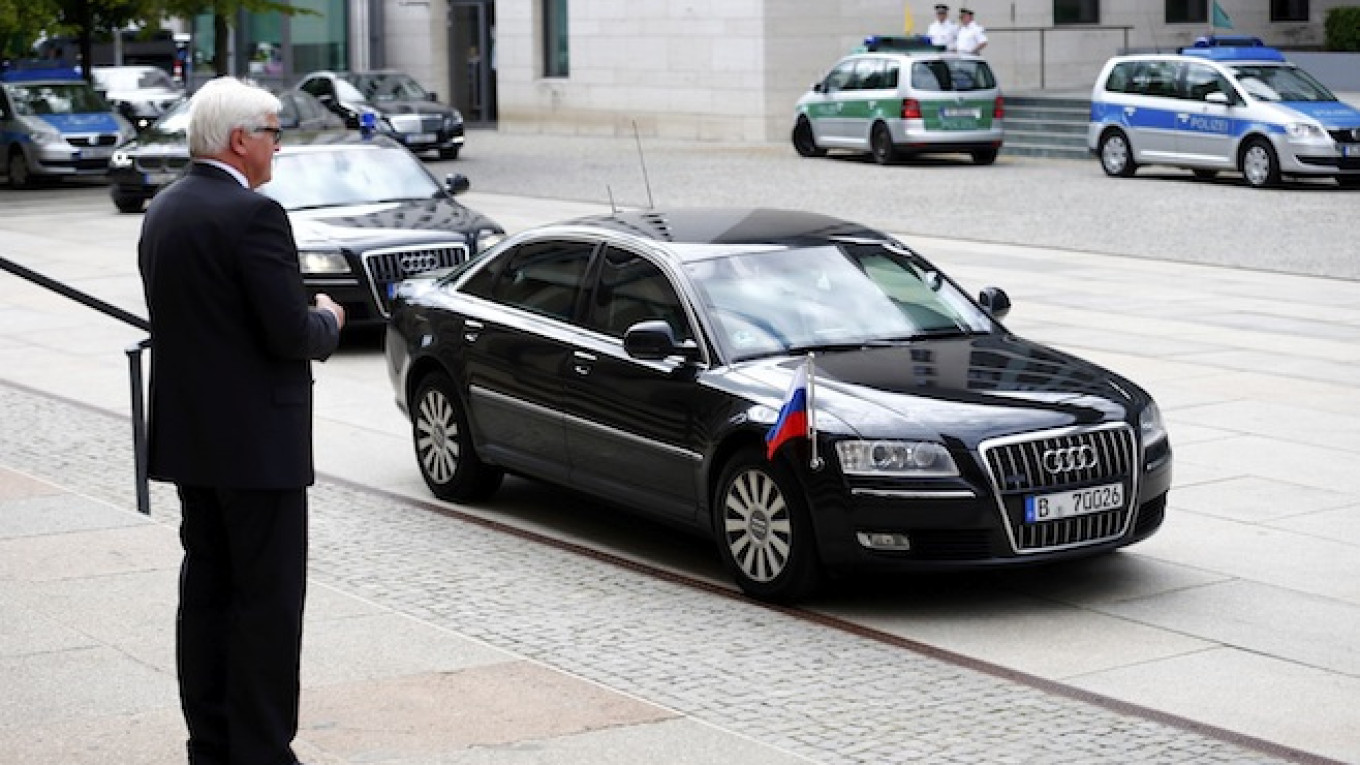BERLIN – The downing of a Malaysian plane over an area of eastern Ukraine controlled by separatists has made tougher sanctions against Russia necessary, the German government said on Monday, a position that was backed by the country's main business lobby.
The European Union has already frozen assets and banned travel for some Russian officials after Russia annexed Ukraine's Crimea region and began supporting separatists fighting Kiev's forces in eastern Ukraine.
However, prior to the crash, Germany had been reluctant to agree to heavier sanctions, given its position as Europe's biggest exporter to Russia, and has sought to maintain a close diplomatic relationship with Moscow.
EU policy-makers will meet on Tuesday to discuss whether to impose further measures.
"After the crash of the passenger plane MH17, a completely new situation came about which makes further measures necessary," government spokeswoman Christiane Wirtz said at a news conference on Monday.
"The Kremlin continues to have little interest in clearing up and is not making its influence on the separatists count. There continues to be reports about the inflow of Russian weapons into eastern Ukraine via border areas controlled by separatists and Russia is still obliged to stop that," she said.
Berlin is aiming to get a sector-specific package of sanctions against Russia during negotiations in Brussels that could conclude on Tuesday.
The measures could include closing the bloc's capital markets to Russian state banks, an embargo on arms sales and restrictions on dual-use and energy technologies.
"Only such a substantial package would enable the German government and the EU to send a clear, strong signal to Russia," Wirtz said, adding that Germany was talking to EU partners about stopping deliveries of arms to Russia, even where contracts already exist.
Ulrich Grillo, the head of the Federation of German Industry (BDI) lobby, said on Monday that further economic measures should not be ruled out, even though they could damage both the German and EU economies.
"The BDI and I personally have become convinced that the behavior of the Russian government in the Ukrainian conflict of secession must have noticeable consequences for Moscow," Grillo wrote in a guest contribution for the Handelsblatt newspaper.
"As painful as further economic sanctions will be for European business development, for German exports and for individual companies, they cannot and must not be ruled out as a way to apply pressure on the Russian government,” he wrote.
Could Cost Jobs
Germany, Europe's biggest economy, sold about 36 billion euros ($48 billion) of goods to Russia last year, almost a third of the EU's total. German exports to Russia dropped by 14.7 percent in the first five months of the year, according to data on Monday, and some business groups have warned that the decline endangers some 25,000 jobs in Germany.
On Sunday, Finance Minister Wolfgang Schaeuble said Germans must put peace before economic considerations and accept tougher sanctions against Russia if necessary.
Grillo acknowledged that the effects of sanctions are debatable but said Russia's dependence on "raw-material exports and on access to international capital markets" could be pressure points. He said sanctions agreed so far had affected the German economy but had been "quite manageable."
"Harsher sanctions will lead to significantly more noticeable consequences. The economic damage that will arise for Germany and the other EU countries will be more than cancelled out, however, if we succeed in enforcing international law in Europe and a legal framework in general,” Grillo wrote.
See also:
A Message from The Moscow Times:
Dear readers,
We are facing unprecedented challenges. Russia's Prosecutor General's Office has designated The Moscow Times as an "undesirable" organization, criminalizing our work and putting our staff at risk of prosecution. This follows our earlier unjust labeling as a "foreign agent."
These actions are direct attempts to silence independent journalism in Russia. The authorities claim our work "discredits the decisions of the Russian leadership." We see things differently: we strive to provide accurate, unbiased reporting on Russia.
We, the journalists of The Moscow Times, refuse to be silenced. But to continue our work, we need your help.
Your support, no matter how small, makes a world of difference. If you can, please support us monthly starting from just $2. It's quick to set up, and every contribution makes a significant impact.
By supporting The Moscow Times, you're defending open, independent journalism in the face of repression. Thank you for standing with us.
Remind me later.


